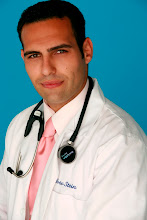There are many causes and contributing factors of CTS. The most prevalent cause is mechanical irritation from simply moving the hands too fast for too long, without enough rest. Another risk factor is age (over 50 years old). In this era of an aging workforce, this may be a significant issue. Fast, repetitive movements of the arms and hands are often a direct cause and can be appreciated by watching someone knit rapidly and/or performing line work using fast, repetitive movements. If the hands/wrists have to bend in awkward positions to accomplish a work task, or if a tool that is frequently used places pressure in the palm of the hand, these can also contribute to the onset or perpetuation of CTS. Other conditions can also contribute to CTS including inflammatory arthritis like rheumatoid, diabetes, pregnancy, the use of birth control pills, obesity and hypothyroidism.
The management of CTS is case specific, and is dependant on which of the above mentioned causes or contributors are present. Management of any metabolic disorder such as diabetes or hypothyroid is important, especially compliance with taking appropriate medication, when indicated. The management of weight, hormone replacement therapy, and fluid retention all play a roll in CTS management. Ergonomic or job-related management strategies are very important and can include work station modifications so that unnecessary awkward arm/wrist/hand positions can be avoided. This may require moving the item being worked on to a less stressful position, using a different type of tool handle (screw driver, etc.), changing the height or reach distance at which the material is worked on, and taking “mini-breaks” every ½ to 1 hour when the lack of rest is a contributor. Frequently, the combination of pinching a phone between the head and shoulder, typing data into a computer where the monitor is positioned too high or off to one side, and excessive arm motions using a computer mouse can contribute to pinching the nerve in the neck and/or arm, resulting in CTS. Remedies for this situation include the use of a head set, repositioning the computer monitor so that it is in front of the worker, and using a trackball type of mouse to eliminate arm motion can be extremely helpful. Treatment strategies offered by chiropractors include the use of night splinting to avoid awkward wrist/hand positions during sleep. In addition, manual therapy to the wrist and the tight muscles in the front of the forearm, as well as other nerve constriction areas such as the elbow, shoulder, and neck, manipulation of the joints in hand, wrist, elbow, shoulder, and/or neck, depending on what is unique and needed for that patient, and the use of physiological therapeutics such as low level laser light therapy, electrical stimulation, and/or ultrasound have all been shown to offer beneficial effects. Nutritional recommendations include Vitamin B6 (150mg/day), magnesium, calcium, Co-Q10, omega 3 fatty acids and vitamin D3. Reducing glutens (wheat, oats, barley, and rye) is also very important due to the inflammatory response of these foods. Surgery is typically, the last treatment resort and is appropriate, “when all else fails.” We welcome you to our clinic and are proud to offer you a non-drug, non-surgical solution for CTS and its disabling symptoms.

No comments:
Post a Comment